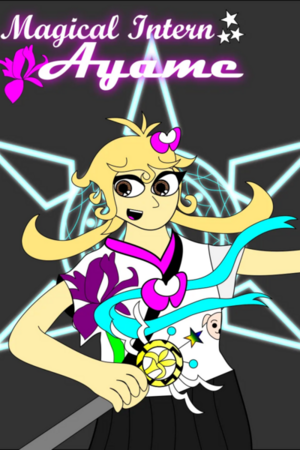Chapter 103:
Epilogue I – But his soul is marching on.
His Soul is Marching On to Another World; or, the John Brown Isekai
I John Brown am now quite certain that the crimes of this guilty, land: will never be purged away; but with Blood. I had as I now think: vainly flattered myself that without very much bloodshed; it might be done.
- John Brown, 2nd of December 1859, last letter before his execution.
2nd of December, 1859 11:50 AM
Charles Town, Virginia
Old John Brown’s body was not yet moldering in the grave. He was still hanging; he had been hanging for the last thirty minutes. A group of doctors had climbed onto the scaffold with the sheriff’s permission, and they were examining the dead (?) old man closely. He seemed to be at peace, quite unlike a man who had just been brutally suffocated, and some of the doctors could swear that they saw a slight smirk on Brown’s face even if they couldn’t see his face due to it being under a hood used for the hanging.
“…should we just let him down?” said one doctor. “He must be dead. No man can survive after being strangled for thirty minutes.” Nobody in the audience, and there was quite the vast audience of Charles Town citizens and soldiers, objected so he cut him loose from the noose. Brown’s limp body fell on to the scaffold with a loud thud. The doctor rolled Brown face-up and put his hand on the old man’s chest. His heart wasn’t beating. “No heartbeat.”
The crowd around the gallows breathed a sigh of relief. There was general revelry upon hearing the impromptu coroner’s report. Some kept from, as good Christians should, cheering the death of a man no matter how despised he was seemed indecent. Spectators rushed to the gallows to preserve mementos of this occasion: some took locks of Brown’s hair, some cut up pieces from the gallows and distributed it among themselves. It was as if human decency had left the town and men had been turned into savages.
When the crowd had enough of plucking the old man, the doctors carried his body back to the jail to officially declare him dead and sign his death certificate. Another doctor, a more impatient type, quickly took off the hood from Brown to see that the old man’s face was somehow intact. There were no usual signs of asphyxiation: his eyes were where they should be, his skin still had a healthy color, and no fluid had come out of his mouth or nose. “Jesus Christ… This man doesn’t look dead to me.”
“His heart isn’t beating; I think that proves he isn’t living.” shouted another doctor in the room.
“…I’m not sure.” replied another. “This man is like a demon in human skin.”
“God forbid, let’s hope we aren’t dealing with one. If we are, then he is like the king of demons with how despicable he is.” continued yet another doctor.
A doctor took out a saw. “I think the only way we can be sure is through decapitation.”
Another had a more civilized idea. “Let’s get some strychnine instead, that’ll be cleaner.” A few more ideas floated around the room on how to make sure Brown stayed dead.
The doctor from before who had cut Brown off from the gallows interjected “Stop, let’s take a pause. He has hanged for thirty minutes, and I hope I don’t need to remind you that we are dealing with a mortal man. Nobody can survive hanging for half an hour.”
“Let’s just give the body some time then. His body will become stiff if he’s dead. If it doesn’t, then we can consider decapitation.” replied a more reasonable fellow. He then looked at his pocket watch and declared “Oh, look at the time. Let’s give him some time to molder while we have lunch.”
“Good idea. Taters, anyone?”
“I’ll get the beer.”
“…I’ll stay here to make sure he doesn’t run off.”
After three hours, and then another half an hour, old John Brown’s mortality was finally confirmed when he hadn’t began marching on and out of the jail with his body firmly in rigor mortis. His death certificate was signed by the doctors, who went back to their homes content that they had done a good job making sure that John Brown wasn’t marching on.
69th of Summer 5859
Casamonu Castle, Casamonu
Today was a beautiful day pretty different from any other.
The summer was slowly coming to an end in Northern Gemeinplatz as colder winds were making their way to the region. General Winter would make his visit soon, and the birds were preparing to make their hasty retreat when it began its invasion once more.
In the midst of this was one 19th century radical abolitionist known as John Brown, who had a pretty good idea where he was. The scenery around him was too ordinary to be Heaven, too unscorched to be Hell. It was Gemeinplatz, an ordinary land not unlike his home.
Brown woke up like he had done so for the last 60 years. He was staying in one of the rooms reserved for the servants of the castle. There were fancier rooms for the family of the nobles who’d stay in the castle, but those had already occupied by refugees who had been staying in the castle beforehand.
There was a small window, without glasses as glass was expensive, to the outside from where Brown could see a jungle of tents. The League had occupied the castle since it was the most secure place in the town. There were soldiers who had gotten up early to prepare their breakfast, which was mostly made out of looted goods from plantations nearby, and some had even broken into song to commemorate their victorious morning. Some of those songs were in the language of Gemeinplatz, while some were singing what they could remember from their homelands. There was even a soldier who had constructed a makeshift drum and another who was accompanying him with a finely carved wooden flute. It was disorganized cacophony that had somehow blended into an enjoyable blend.
John Brown, resting his arms on the window, had one thing to say while taking a good look at Gemeinplatz: “This is a beautiful country.”




Please sign in to leave a comment.